Bellini belongs to that category of not-quite-great operatic composers whose works are also very difficult to perform adequately, and don’t seem to be all that popular when they are. But Welsh National Opera’s theme for the season of Madness means that as one of the leading exponents of operatic insanity Bellini is bound to turn up, and WNO does him proud vocally, if not in production, by mounting I puritani, his last and for some aficionados his finest opera. Norma seems to me to be clearly superior, certainly as drama. I puritani has a wretched libretto, not only linguistically feeble but also with a hopeless plot. It certainly does contain wonderful music, above all of course Elvira’s mad scene in Act II (she has one in each of the three acts).
It’s roundheads versus cavaliers, but the director Annilese Miskimmon seems to think it makes more sense if the roundheads are Orangemen of the mid-1970s, while the cavaliers are a delusion of Elvira’s. The setting for both is a dreary hall, with the now obligatory old-fashioned central heating and stacks of plastic chairs. When the cavalier hero Arturo appears he looks like an OTT Osric, and it’s part of Barry Banks’s triumph that despite that he makes the role plausible and sings it with all his usual reliable élan; Banks is a veteran who deserves to be more widely celebrated than he is, even if he isn’t precisely in the heroic mould. His Elvira is the young Rosa Feola, an exciting new singer, who once past some treble-style piping interpreted her marvellous music with intensity and flexibility. Any Elvira is advised to listen to Callas’s very first recording, the great aria ‘O rendetemi la speme’, and it sounded as if Feola had and had made it her own. The other main singers, David Kempster as the semi-sympathetic Riccardo, and the two Valtons, were reliable and acted with as much conviction as the piece allows. What may remain most vividly in the memory is the supreme conducting of Carlo Rizzi and the equally impassioned playing of the wonderful orchestra. A pity that the performance of the exciting overture had to be with the curtain up, and with characters — we had no idea who — rushing in and out of doors, generating not the hoped-for sense of panic but only confirming the fact that directors are unable to leave overtures alone. Having two intervals meant that an already rather prolix opera seemed endless, despite which this is as good a treatment of a Bellini opera as we are likely to see in the near future.
Three days later the Royal Opera opened its season with the first performance there of Gluck’s Orphée et Eurydice. A heavily revised version of his Italian Orfeo, it contains much new music, and a title role written for a high tenor. Actually, much of the new music is usually incorporated into productions in Italian or German, so it wasn’t quite as novel an experience as the publicity made out. Gluck, like Bellini, is too rarely performed, the usual excuse being that he is a house-emptyer. By now, I suspect, Rameau is more popular and more performed than Gluck, which seems to me grotesque. Most of Orphée, by no means his finest opera, is great music, and the parts that aren’t great can easily be omitted without any sense of discontinuity.
To make it a draw, presumably, the Royal Opera cast Juan Diego Florez as Orphée, making his stage role debut. He has the right kind of voice, but left me almost entirely unmoved, which no previous Orfeo has. He is a wooden actor, given to a few standard gestures, and when bewildered or anxious, as in much of the outer acts, he stands with his hands deep in his pockets and gazes at the floor. In Act III he snatched the odd glance at Eurydice to make sure she was still following (not allowed) and walked gingerly backwards. His voice is hardening, and though he still produces the top notes that send people wild, he can’t ever be said to sing expressively, even in ‘J’ai perdu mon Eurydice’, where, for example, he failed to vary the repeated invocations of her name (another case of Callas being required listening).
There are two directors, though often it seemed as if there wasn’t one. Hofesh Shechter is responsible for the dancing, and presumably for some of the action, together with John Fulljames. A total redneck as regards ‘dance’, I can only report that the dancing on this occasion struck me as risible: most of the chorus doing what seem to be elementary PE exercises, plus a fair amount of foot wiggling; while a manic soloist threw himself around the stage startlingly, but not, so far as I could tell, meaningfully. For the last 20 minutes or so the music is feeble, as bad as Mozart’s for Idomeneo, and I can’t say worse than that. Amour, sung by Amanda Forsythe, is pretty mobile too, and in an incongruously campy way. Lucy Crowe is good as Eurydice, making the most of her Act III aria.
As the curtain goes up, so do the orchestra and conductor, until they are on 10-feet-high stilts, playing behind the acting space. They sink to pit level at the start of Act II, then rise again. I can’t imagine the point. John Eliot Gardiner conducts the English Baroque Soloists and the Monteverdi Choir. Notorious for his Toscanini-style relationship with his players, it’s a pity that he seems not to have listened to Toscanini’s concert performance of Act II, one of the immortal recordings of anything, thrilling in the Dance of the Furies and unspeakably moving in the Elysian Fields. I shall go and listen to it now.
Got something to add? Join the discussion and comment below.
Get 10 issues for just $10
Subscribe to The Spectator Australia today for the next 10 magazine issues, plus full online access, for just $10.

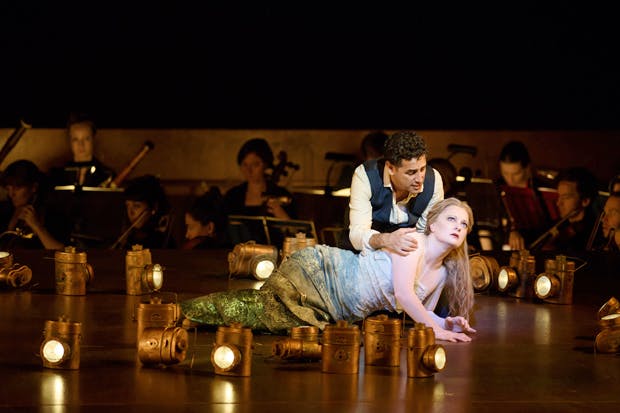
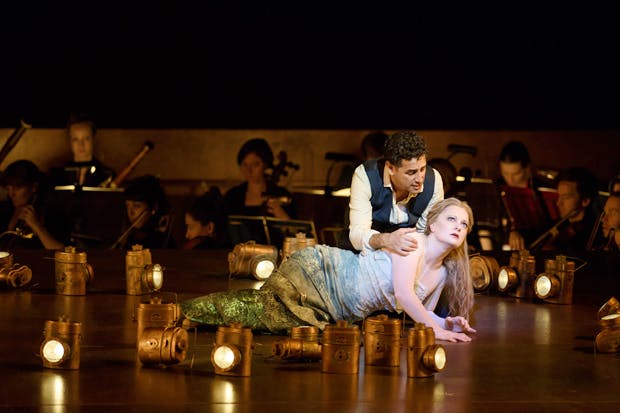

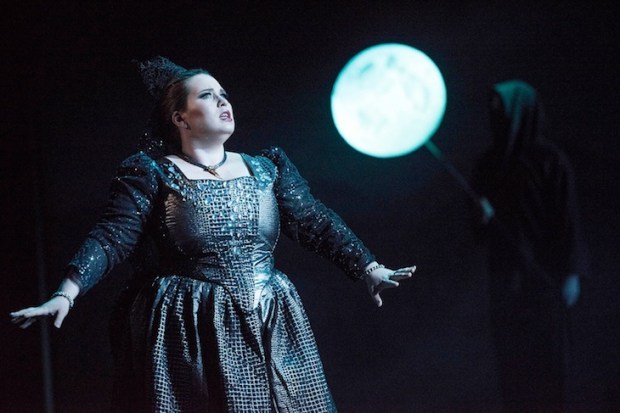
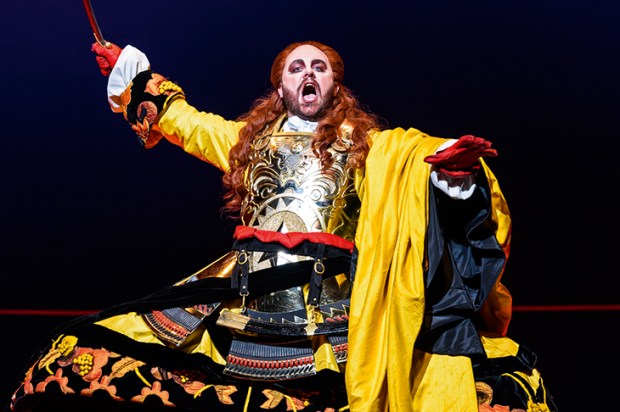
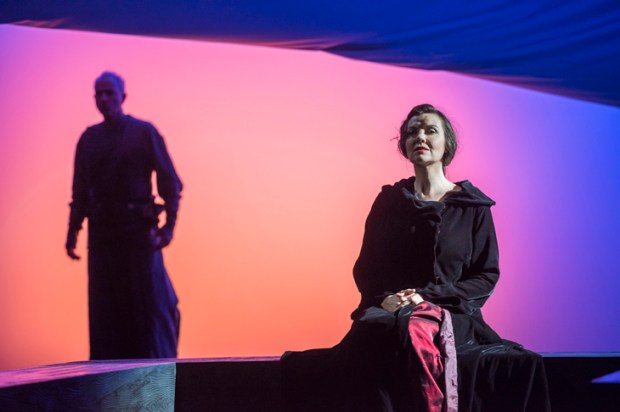
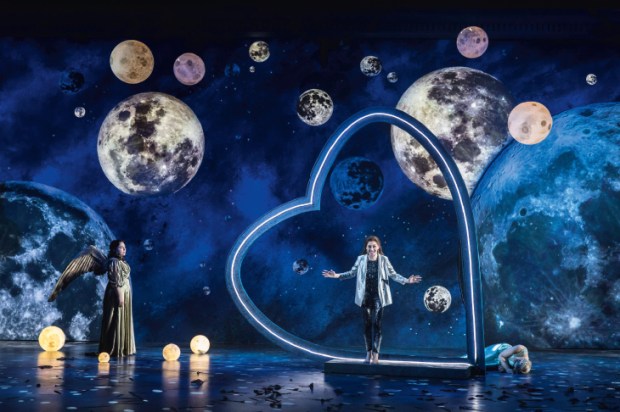






Comments
Don't miss out
Join the conversation with other Spectator Australia readers. Subscribe to leave a comment.
SUBSCRIBEAlready a subscriber? Log in